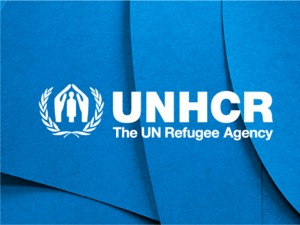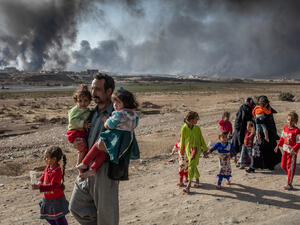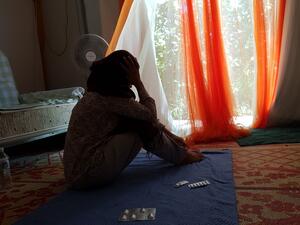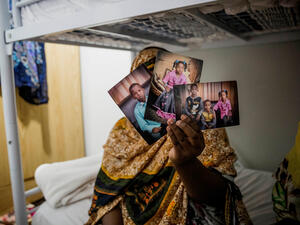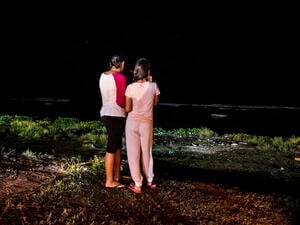Australian Citizenship Ceremony Speech by Adrian Edwards
Australian Citizenship Ceremony Speech by Adrian Edwards
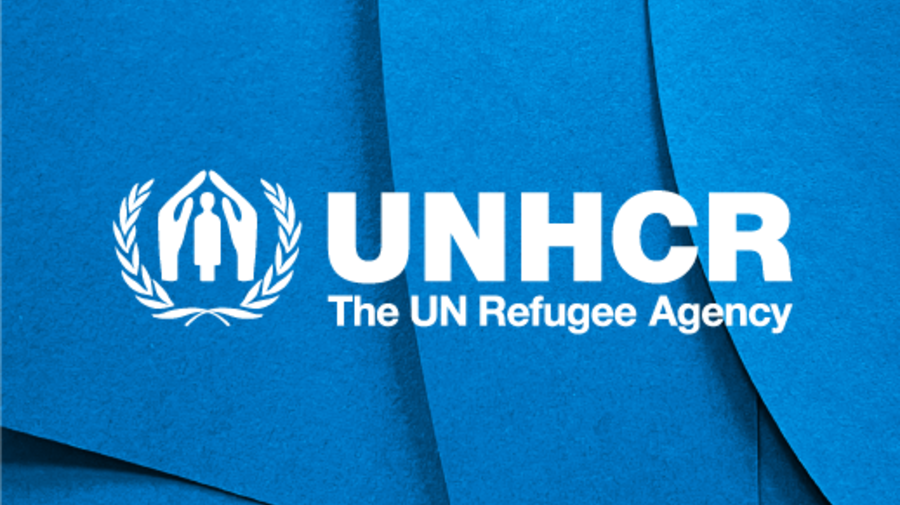
National Museum of Australia, Canberra
Dear impressive new citizens of Australia, your friends, supporters, and your cheersquads. Your Excellency the Governor-General and Mrs Hurley, Minister Giles, Secretary and Deputies. Friends.
I feel especially honoured to be invited to speak with you today in the lead up to World Refugee Day on 20 June. A day each year that we acknowledge the courage, strength and contributions of the millions of people around the world who have been forced to flee their homes due to violence, war and persecution.
I was warned of the risk of exposure to overwhelming positivity and joy from today’s ceremony. And I feel it.
But in my career in UNHCR I have encountered the exact opposite of this sentiment of optimism and hope. I have met the distress and despair of the newly displaced and of those waiting decades in limbo. I have wondered how they would cope, another day, year, decade - how would their children fare in the face of unknown futures?
Undoubtedly, many of you new and about-to-be Australians here today recognise this – and have known and remember well that existence - that distress and despair, lost hope, fear for your own futures and that of your families.
Having faced that torment, it makes this moment here, today, all the more remarkable; and very personal too.
So before any further words, let me say thank you for your perseverance, thank you for your courage – frequently against all odds -- thank you for the example you continue to set -- of human values, of resilience, of adaptability. You had no choice in those circumstances that led you to flee. But because you know that what is precious can be so easily lost – you also know what must be cherished. And I know that you will greatly cherish the citizenship of the country that you now call home, where you have started this new chapter in life; you will value a passport embossed with a kangaroo and emu; the right to vote for those that lead; and enhanced opportunities to support your families to join you here.
That we are here today, that this ceremony is taking place, we can give thanks to the champions of human rights and refugee rights of the past. Access to nationality was anchored many decades ago in international law. Article 15 of the 1948 Universal Declaration of Human Rights establishes the right of every person to a nationality. Australia was one of just eight nations involved in drafting the Universal Declaration and played a prominent role in its negotiation under the leadership of Doc Evatt. He was a prominent figure in Australian politics during the middle of the 20th century, a former Australian Minister and diplomat who went on to become the President of the United Nations General Assembly.
The Refugees Convention of 1951 also has obligations to provide nationality. It requires signatory states to ‘as far as possible facilitate the assimilation and naturalisation of refugees’. Through a signature on 22 January 1954, Australia accepted the Convention’s obligations. Australia’s ratification of the Statelessness conventions of 1954 and 1961 further demonstrated the country’s commitment to provide protections and secure access to rights through the grant of nationality. Today you are all beneficiaries of these commitments made all those decades ago.
We know that the right of nationality is fundamental for the enjoyment of the full range of human rights. Those who have lost the protection and security attached to their nationality or those who have never had access to nationality -- the stateless -- are more vulnerable to human rights violations.
Naturalization concludes the legal dimension of the integration or settlement process, as it leads to cessation of refugee status in accordance with Article 1C (3) of the 1951 Convention. It marks the end of that chapter legally, though not emotionally. The attachment to your refugee-ness, that part of your identity and history, is a deeply personal matter, including whether you wish to embrace it or leave it behind.
Importantly, citizenship provides a sense of identity and enhances the feeling of inclusion in society. At a personal level for those who’ve fled, it lessens the anxieties about being forced to return when fears of persecution remain, and it makes the option of a hopeful future for you and your families a reality. Of course, this is a two-way street, you have obligations as well as rights. In Australia that includes mandatory voting in the Federal election. You have some time to study up on that one!
I truly don’t want to dampen the positive energy of this event with the grim statistics of forced displacement in the world today – with the numbers of refugees and internally displaced now having reached 100 million worldwide. But I do provide this context because I want to take this opportunity to reflect, in the presence of the political leadership here, on the importance of making the pathway to nationality achievable and accessible for more of those that Australia either offers, or has an explicit obligation to protect. This commitment is a part of contribution Australia makes to the world in sharing responsibility for those displaced, in reducing those numbers through providing truly durable solutions as you become Australians. It is what Australia offers as part of being a good actor in the international community.
The Refugees Convention at Article 34 extends to explain that countries should ‘make every effort to expedite naturalisation proceedings and to reduce as far as possible the charges and costs of such proceedings’. But for many refugees, the pathway to citizenship is complicated, it can be long and create new anxieties. For some, the road is entirely blocked. UNHCR welcomes the commitment by the Albanese Government to find a way forward for those refugees and stateless persons with temporary protection status in Australia so that they may be able to stand here like you one day. We also hope for renewed energy to enhance citizenship accessibility in line with the Refugees Convention’s emphasis that State Parties should make good-faith efforts to assist refugees to meet the requirements for naturalization, and that process should be expedited. Studies have shown that experiences of war, torture, assault, and other extreme events that cause harm, can create significant barriers to learning a second language. Integration, even when embraced, can take time. Documentation that is usually required for such processes can be impossible for refugees to provide. These requirements create barriers – difficult hurdles and delays -in the pursuit of citizenship for those it benefits most; those that most need the rights and protections that nationality brings.
You are all here as beneficiaries of Australia’s mature and successful refugee resettlement program which has been a source of pride and an asset to the country over many years. Australia is a key player in resettlement globally and UNHCR has been grateful to work in partnership with this program with the Government to identify those most in need over many years. As we emerge from a period of pandemic challenges including border closures, we welcome the arrival of many more refugees and humanitarian entrants at the start of their journey to citizenship and a ceremony of welcome just like this one.
To conclude, World Refugee Day -- and Refugee Week as embraced in Australia -- is a time when we ask people to remember the importance of welcoming newcomers into their communities. Those who have been forced to flee bring with them their cultures, their unique experiences and their hope – all of which make any community stronger and more vibrant. You, here today are a brilliant vision of that vibrant Australia.
Congratulations to you all and to Australia for this wonderful occasion and meaningful response to refugee protection.


